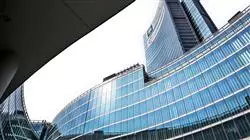University certificate
The world's largest artificial intelligence faculty”
Introduction to the Program
Mediante este Postgraduate certificate cimentado en el Relearning, manejarás las técnicas más innovadoras de la Inteligencia Artificial en la Preservación del Patrimonio y Restauración”

Un nuevo informe publicado por la Organización de las Naciones Unidas pone de manifiesto que el 40% de los sitios del Patrimonio mundial se encuentran en riesgo a causa de factores como el cambio climático o la escasez de recursos. Ante esta realidad, la entidad insta a los arquitectos a emplear la Inteligencia Artificial para abordar estos retos, implementando técnicas de análisis predictivo y modelado que optimizan tanto los procesos de Preservación como Restauración. Para ello, los profesionales requieren disponer de competencias avanzadas para sacarles el máximo rendimiento a estos instrumentos.
Con el objetivo de facilitarles esta labor, TECH presenta un revolucionario programa en Heritage Preservation and Restoration with Artificial Intelligence. Diseñado por auténticas referencias en este campo, el itinerario académico profundizará en el uso de la fotogrametría para la documentación precisa de los edificios históricos. Asimismo, el temario ahondará en el manejo de la Inteligencia Artificial para prevenir el deterioro en las estructuras y ofrecerá numerosos ejemplos de cómo esta tecnología ha mejorado la precisión en la conservación. También los materiales didácticos se centrarán en las consideraciones éticas en la aplicación de Inteligencia Artificial en la Restauración del Patrimonio, así como en las perspectivas futuras sobre las tecnologías emergentes en este ámbito. Así pues, los egresados desarrollarán competencias avanzadas para utilizar la Inteligencia Artificial para el análisis de datos, la modelización y la toma de decisiones en proyectos de Preservación del Patrimonio.
En cuanto a la metodología del programa, este se basa en una modalidad 100% online que permite a los arquitectos planificar sus propios horarios. Igualmente, para afianzar dichos contenidos, TECH emplea su disruptivo método del Relearning. Este sistema promueve un aprendizaje natural y progresivo, por lo que los alumnos no tendrán que recurrir a técnicas tradicionales como la memorización. Lo único que necesitarán es un dispositivo electrónico con conexión a internet para acceder al Campus Virtual, donde hallarán disímiles recursos multimedia como vídeos explicativos.
Dispondrás de los contenidos didácticos desde cualquier dispositivo con conexión a internet. ¡También desde tu móvil!”
Este Postgraduate certificate en Heritage Preservation and Restoration with Artificial Intelligence contiene el programa educativo más completo y actualizado del mercado. Sus características más destacadas son:
- El desarrollo de casos prácticos presentados por expertos en Inteligencia Artificial
- Los contenidos gráficos, esquemáticos y eminentemente prácticos con los que está concebido recogen una información práctica sobre aquellas disciplinas indispensables para el ejercicio profesional
- Los ejercicios prácticos donde realizar el proceso de autoevaluación para mejorar el aprendizaje
- Su especial hincapié en metodologías innovadoras
- Las lecciones teóricas, preguntas al experto, foros de discusión de temas controvertidos y trabajos de reflexión individual
- La disponibilidad de acceso a los contenidos desde cualquier dispositivo fijo o portátil con conexión a internet
Con los medios de estudio mejor valorados de la docencia online, este programa universitario te permitirá avanzar de forma imparable en tu crecimiento profesional como Arquitecto”
El programa incluye en su cuadro docente a profesionales del sector que vierten en esta capacitación la experiencia de su trabajo, además de reconocidos especialistas de sociedades de referencia y universidades de prestigio.
Su contenido multimedia, elaborado con la última tecnología educativa, permitirá al profesional un aprendizaje situado y contextual, es decir, un entorno simulado que proporcionará una capacitación inmersiva programada para entrenarse ante situaciones reales.
El diseño de este programa se centra en el Aprendizaje Basado en Problemas, mediante el cual el profesional deberá tratar de resolver las distintas situaciones de práctica profesional que se le planteen a lo largo del curso académico. Para ello, contará con la ayuda de un novedoso sistema de vídeo interactivo realizado por reconocidos expertos.
¿Buscas dominar las técnicas de documentación digital más avanzadas para mejorar la gestión del Patrimonio arquitectónico? Consíguelo con esta titulación”

Profundizarás en la implementación de escaneo láser y análisis predictivo en la conservación del Patrimonio”
Why study at TECH?
TECH is the world’s largest online university. With an impressive catalog of more than 14,000 university programs available in 11 languages, it is positioned as a leader in employability, with a 99% job placement rate. In addition, it relies on an enormous faculty of more than 6,000 professors of the highest international renown.

Study at the world's largest online university and guarantee your professional success. The future starts at TECH”
The world’s best online university according to FORBES
The prestigious Forbes magazine, specialized in business and finance, has highlighted TECH as “the world's best online university” This is what they have recently stated in an article in their digital edition in which they echo the success story of this institution, “thanks to the academic offer it provides, the selection of its teaching staff, and an innovative learning method aimed at educating the professionals of the future”
A revolutionary study method, a cutting-edge faculty and a practical focus: the key to TECH's success.
The most complete study plans on the university scene
TECH offers the most complete study plans on the university scene, with syllabuses that cover fundamental concepts and, at the same time, the main scientific advances in their specific scientific areas. In addition, these programs are continuously being updated to guarantee students the academic vanguard and the most in-demand professional skills. In this way, the university's qualifications provide its graduates with a significant advantage to propel their careers to success.
TECH offers the most comprehensive and intensive study plans on the current university scene.
A world-class teaching staff
TECH's teaching staff is made up of more than 6,000 professors with the highest international recognition. Professors, researchers and top executives of multinational companies, including Isaiah Covington, performance coach of the Boston Celtics; Magda Romanska, principal investigator at Harvard MetaLAB; Ignacio Wistumba, chairman of the department of translational molecular pathology at MD Anderson Cancer Center; and D.W. Pine, creative director of TIME magazine, among others.
Internationally renowned experts, specialized in different branches of Health, Technology, Communication and Business, form part of the TECH faculty.
A unique learning method
TECH is the first university to use Relearning in all its programs. It is the best online learning methodology, accredited with international teaching quality certifications, provided by prestigious educational agencies. In addition, this disruptive educational model is complemented with the “Case Method”, thereby setting up a unique online teaching strategy. Innovative teaching resources are also implemented, including detailed videos, infographics and interactive summaries.
TECH combines Relearning and the Case Method in all its university programs to guarantee excellent theoretical and practical learning, studying whenever and wherever you want.
The world's largest online university
TECH is the world’s largest online university. We are the largest educational institution, with the best and widest online educational catalog, one hundred percent online and covering the vast majority of areas of knowledge. We offer a large selection of our own degrees and accredited online undergraduate and postgraduate degrees. In total, more than 14,000 university degrees, in eleven different languages, make us the largest educational largest in the world.
TECH has the world's most extensive catalog of academic and official programs, available in more than 11 languages.
Google Premier Partner
The American technology giant has awarded TECH the Google Google Premier Partner badge. This award, which is only available to 3% of the world's companies, highlights the efficient, flexible and tailored experience that this university provides to students. The recognition as a Google Premier Partner not only accredits the maximum rigor, performance and investment in TECH's digital infrastructures, but also places this university as one of the world's leading technology companies.
Google has positioned TECH in the top 3% of the world's most important technology companies by awarding it its Google Premier Partner badge.
The official online university of the NBA
TECH is the official online university of the NBA. Thanks to our agreement with the biggest league in basketball, we offer our students exclusive university programs, as well as a wide variety of educational resources focused on the business of the league and other areas of the sports industry. Each program is made up of a uniquely designed syllabus and features exceptional guest hosts: professionals with a distinguished sports background who will offer their expertise on the most relevant topics.
TECH has been selected by the NBA, the world's top basketball league, as its official online university.
The top-rated university by its students
Students have positioned TECH as the world's top-rated university on the main review websites, with a highest rating of 4.9 out of 5, obtained from more than 1,000 reviews. These results consolidate TECH as the benchmark university institution at an international level, reflecting the excellence and positive impact of its educational model.” reflecting the excellence and positive impact of its educational model.”
TECH is the world’s top-rated university by its students.
Leaders in employability
TECH has managed to become the leading university in employability. 99% of its students obtain jobs in the academic field they have studied, within one year of completing any of the university's programs. A similar number achieve immediate career enhancement. All this thanks to a study methodology that bases its effectiveness on the acquisition of practical skills, which are absolutely necessary for professional development.
99% of TECH graduates find a job within a year of completing their studies.
Postgraduate Certificate in Heritage Preservation and Restoration with Artificial Intelligence
The preservation of cultural heritage is a highly relevant task to ensure the conservation of the history and traditions of societies. Thanks to technological advances, professionals can optimize their efforts by using tools that facilitate damage identification, intervention planning and digital preservation. If you want to specialize in the integration of AI in heritage conservation, you've come to the right place. At TECH Global University you will find a complete Postgraduate Certificate that will help you to achieve your goals. This program, taught in 100% online mode, covers a wide variety of topics that will allow you to delve into the applications of AI in the preservation and restoration of cultural heritage. Here, you will learn how to use data analysis tools to assess the condition of heritage assets, identifying patterns of deterioration and suggesting specific interventions. In addition, you will explore 3D scanning and digital modeling technologies that facilitate the creation of virtual replicas of historical pieces, ensuring their preservation for future generations. In this way, you will be able to meet the current challenges of the sector.
Study a Postgraduate Certificate in Heritage Preservation and Restoration with Artificial Intelligence
With the growing interest in the digitization of heritage, the restoration and conservation sector demands professionals trained in the use of advanced technological tools. Through this Postgraduate Certificate, you will be prepared to apply innovative techniques in your projects, carrying out precise and controlled interventions. You will also address the applications of machine learning in the detection of damage invisible to the human eye, a key advance for preventive restoration and long-term conservation. Upon completion, you will be ready to lead conservation projects in cultural institutions, museums and historic sites, making the most of the potential of technology to protect the world's cultural heritage.







